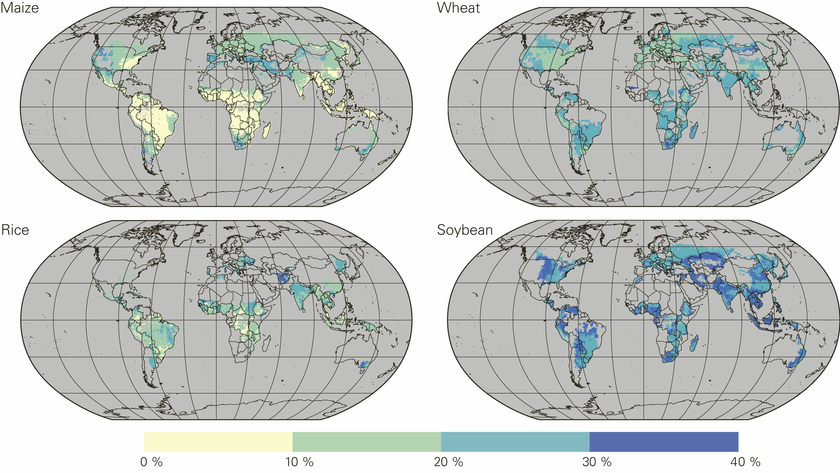Archive detail
Reduced crop water use due to climate change
May 31, 2016 |
In the future, water requirements for global crop production could be reduced as a result of climate change. This is the conclusion of a study by an international research team which included Eawag scientists. Using computer models and data from field experiments, the researchers estimated how, by 2080, rising CO2 concentrations would affect water requirements for wheat, maize, rice and soybean. Under the scenario adopted for the study, CO2 emissions are projected to double relative to 2000. Increased atmospheric CO2 concentrations enhance photosynthesis and thus reduce leaf-level transpiration in plants. The researchers found that, depending on the type of crop, global average crop water productivity (CWP, the ratio of crop yield to evapotranspiration) would increase by between 10 per cent (rice) and 27 per cent (wheat). They also identified regional disparities driven by differences in growing conditions: for example, arid regions are expected to show particularly large increases in CWP (up to 48 per cent for rainfed wheat). According to the researchers, rising CO2 concentrations could allow yields to be increased without additional depletion of water resources.


